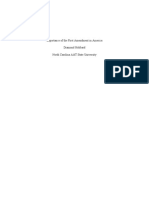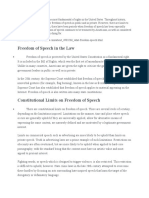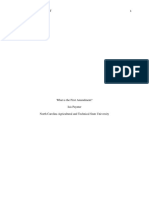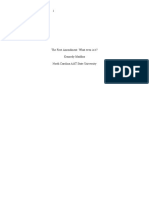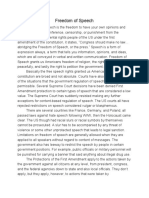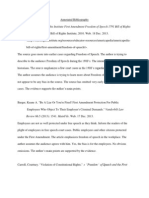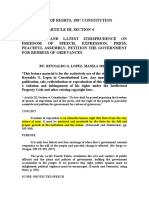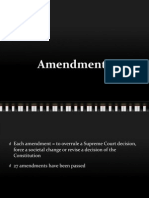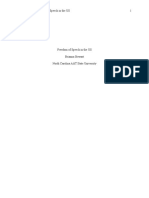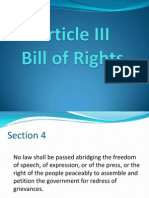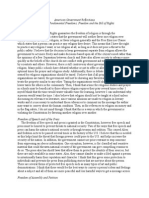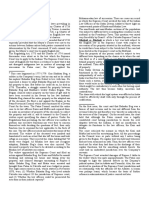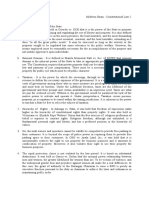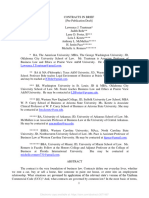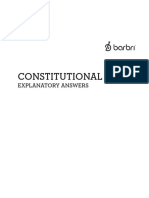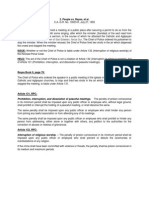0% found this document useful (0 votes)
109 views7 pagesFirst Amendment
The First Amendment protects several freedoms including freedom of speech, religion, press, assembly, and the right to petition the government. It has been subject to ongoing interpretation over issues like protest, publications, and religious freedom. While these rights are broad, there are limits such as speech that incites harm or illegal actions. Landmark Supreme Court cases have helped define the scope and application of the First Amendment.
Uploaded by
Ryan WashingtonCopyright
© © All Rights Reserved
We take content rights seriously. If you suspect this is your content, claim it here.
Available Formats
Download as ODT, PDF, TXT or read online on Scribd
0% found this document useful (0 votes)
109 views7 pagesFirst Amendment
The First Amendment protects several freedoms including freedom of speech, religion, press, assembly, and the right to petition the government. It has been subject to ongoing interpretation over issues like protest, publications, and religious freedom. While these rights are broad, there are limits such as speech that incites harm or illegal actions. Landmark Supreme Court cases have helped define the scope and application of the First Amendment.
Uploaded by
Ryan WashingtonCopyright
© © All Rights Reserved
We take content rights seriously. If you suspect this is your content, claim it here.
Available Formats
Download as ODT, PDF, TXT or read online on Scribd
/ 7

